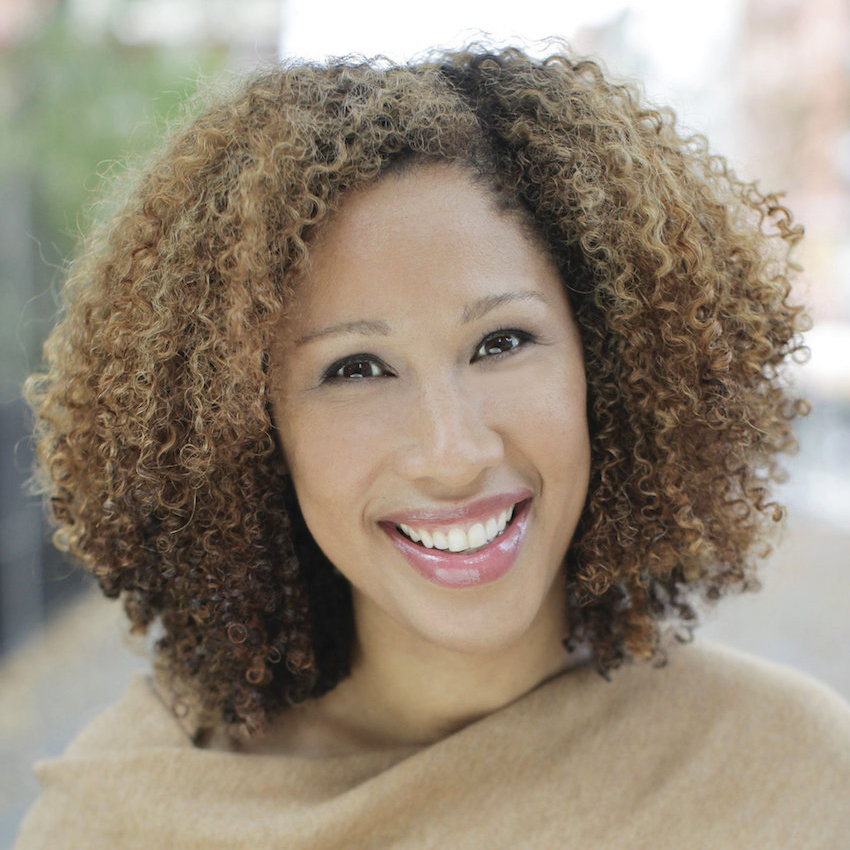Interview with Dr. Lisa Orbe-Austin: counseling psychologist, executive coach, and co-author of the new book Own Your Greatness: Overcome Impostor Syndrome, Beat Self-Doubt, and Succeed in Life

Mentioned in this episode
Own Your Greatness: Overcome Impostor Syndrome, Beat Self-Doubt, and Succeed in Life (April 28, 2020) by Lisa Orb\xe9-Austin PhD (Author), Richard Orb\xe9-Austin PhD (Author).\xa0 https://www.amazon.com/dp/B07ZZHY1Z8/ref=cm_sw_em_r_mt_dp_U_Q6ZNEbKBT93EP\xa0
Contact information and social media links
Twitter https://twitter.com/drorbeaustin\xa0
Instagram https://www.instagram.com/drorbeaustin/\xa0
Linkedin linkedin.com/in/lisaorbeaustin\xa0
Email lisa@dynamictransitionsllp.com\xa0
Facebook https://www.facebook.com/dtpcllp\xa0
https://www.dynamictransitionsllp.com
TEDx Talk \u201cThe Imposter Syndrome Paradox\u201d https://www.youtube.com/watch?v=u2zbcZBI0Do
Education
BA in English from Boston College, MS in Counseling Psychology from Boston College.\xa0 MPhil and PhD in Counseling Psychology from Columbia University. \xa0
Private Practice
Dr. Lisa Orb\xe9-Austin and her husband/business partner, Dr. Richard Orb\xe9-Austin own a counseling practice called Dynamic Transitions, LLP in New York City.\xa0 They offer a range of counseling services, including individual career counseling, group career coaching, career transition coaching, career testing, graduate school admissions counseling, and more.\xa0 See website for details.\xa0 https://www.dynamictransitionsllp.com.
Licensure
Drs. Lisa and Richard Orb\xe9-Austin are licensed psychologists in the state of New York. \xa0
Pivoting
Dr. Lisa started on a path to become a pediatrician, but she pivoted to an English degree.\xa0 She recognized a strength in counseling, and a mentor in grad school helped her find a path toward counseling.\xa0 After falling in love with counseling, she pursued her PhD in Counseling Psychology at Columbia University.\xa0 Dr. Lisa believes that her struggles opened doorways that she would not have found without experiencing difficult situations.\xa0 She and her husband talk about her dark times in their Tedx Talk \u201cThe Imposter Syndrome Paradox\u201d https://www.youtube.com/watch?v=u2zbcZBI0Do. \xa0
Interview topics
- Lisa took jobs that were easy to get instead of being part of a deliberate career path.\xa0 One job led a bad boss.\xa0 It was a difficult time. She felt stuck, like she couldn\u2019t leave.\xa0 She didn\u2019t have another option, and she felt burned out.\xa0 She quit her job and felt devastated.\xa0 After finding a part-time job 2 weeks later, she worked toward founding the practice she and her husband share today.\xa0 The practice has brought her joy and allowed her to help many people.
- Lisa enjoys learning about different occupations and career fields, ladders to advancement, and people\u2019s stories.\xa0 Lisa loves supporting entrepreneurs in their big leap.\xa0 She uses assessments and testing to help them find paths.\xa0 She also provides executive coaching, group classes, and other services.\xa0
- Goal-setting is important.\xa0 She invites her clients into a partnership, and she encourages autonomy. \xa0 \xa0
- Imposter syndrome makes people focus on what they don\u2019t have.\xa0 As an entrepreneur, you need to think about what you do have.\xa0 You can\u2019t be perfect.\xa0 You can still be successful with what you already have. \xa0
- 70% of people have imposter syndrome.\xa0 We\u2019re embarrassed of it, and we want to hide it. \xa0Making sure you are qualified is different from getting further certifications.\xa0
- Your professional life can\u2019t help being an integral part of your identity, but your career shouldn\u2019t be your only identity.\xa0 If you lose your job/career or need to make a change, you will feel like you\u2019ve lost your entire identity.\xa0 Change can be difficult to face because changing is hard.\xa0 You have to let go of one identity and shift into a new perspective of identity.\xa0 We end up making a hierarchy of our identities - this is the best, 2nd best, 3rd best - instead of an even plane.\xa0 You need to think about the best fit for you given the context of your life instead of a hierarchy. \xa0
- On a personal note, I struggled with my identity as a pharmacist while I was a stay-at-home Mom or working part-time.\xa0 I was still a pharmacist, but I didn\u2019t know what to tell people when I went to conferences as a stay-at-home mom.\xa0 \xa0
- New grads need to think about their opportunities a little differently.\xa0 Think long-term.\xa0 The linear, \u201cnext-step\u201d doesn\u2019t always make sense.\xa0 Be flexible.\xa0 Learn to pivot, shift, and change.\xa0 Take a step back and look at the opportunities. \xa0
- Mindset is important.\xa0 Don\u2019t think about what you\u2019re missing.\xa0 Think about what you have to offer. \xa0
- Coaches can use Own Your Greatness with clients.\xa0
- There is a free toolkit for pre-sales of her book.\xa0 One of the items is a list of journal prompts. \xa0
- Lisa advocates for better understanding of mental health.\xa0 She educates on career trajectory and self-awareness. \xa0
Thank you for listening to episode 15 of The Pharmacist\u2019s Voice Podcast!